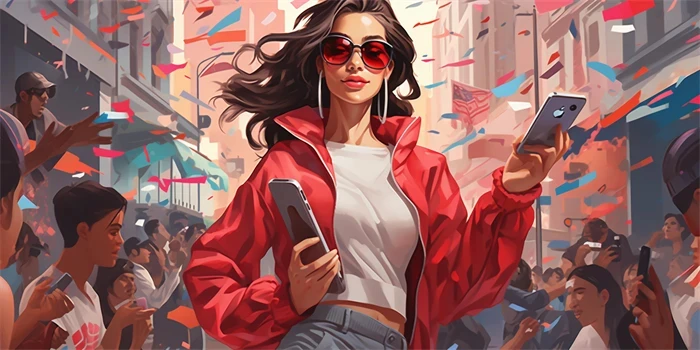Tattoos have become a popular form of self-expression, with people all over the world adorning their bodies with unique and meaningful designs. However, finding the perfect tattoo inspiration can be a daunting task. That’s where AI (Artificial Intelligence) assistance comes in. With the power of AI, unlocking a world of tattoo inspiration has never been easier. Let’s explore how AI can assist and revolutionize the tattoo industry.

1. Image Recognition for Instant Inspiration
AI-powered image recognition technology allows users to search for tattoo ideas based on images they find inspiring. By simply uploading an image or describing it in keywords, AI algorithms analyze millions of tattoo images to provide a curated selection of designs that closely match the user’s preferences.
For example, if a user uploads an image of a tiger, the AI algorithm can generate a range of tiger-related tattoo designs, showcasing different styles, sizes, and placements. This instant inspiration can help individuals visualize their own tattoo ideas and enable them to find the perfect design that resonates with their personality.
2. Personalized Recommendations Based on Body Placement
AI can also assist in recommending tattoo designs based on the body placement chosen by the user. Different body parts require designs that are proportionate and complement the individual’s physical features. With AI assistance, users can specify the desired body placement, and the algorithms can generate tattoo options optimized for that specific area.
Whether it’s a wrist, arm, back, or even a small hidden area, AI algorithms can provide a wide array of designs tailored to the user’s chosen body placement. This allows for a more personalized tattoo experience and ensures that the final result is visually pleasing.
3. Virtual Try-On for Informed Decisions
One of the biggest concerns when getting a tattoo is how it will actually look on the body. AI-powered virtual try-on technology addresses this issue by allowing users to digitally “try on” various tattoo designs before making a permanent commitment.
Using augmented reality (AR) technology, users can upload a photo of themselves and superimpose different tattoo designs onto their body. This enables them to visualize how the tattoo will look in context, helping them make informed decisions about the design, size, and placement.
4. Style Matching for Cohesive Ink
Everyone has a unique sense of style, and tattoos should reflect that individuality. AI algorithms can analyze a user’s existing tattoos or other style preferences, such as clothing or interior design, to provide style-matched tattoo recommendations.
For instance, if a user has a collection of vibrant and abstract artwork, the AI algorithm can suggest tattoo designs that align with this style, ensuring a cohesive and visually appealing ink collection.
5. Collaborative Design with AI Artists
AI is not limited to providing design recommendations; it can actively participate in the creation process. AI artists, also known as generative adversarial networks (GANs), learn from vast tattoo design datasets to generate unique and original tattoo concepts.
Users can collaborate with AI artists, providing feedback and adjusting the generated designs to their preferences. This fusion of human creativity and AI capabilities allows for the creation of truly one-of-a-kind tattoo designs.
6. Online Communities for Feedback and Inspiration
AI-powered platforms create online communities for tattoo enthusiasts to share their designs, get feedback, and find inspiration. These platforms employ AI algorithms to intelligently match users with similar tattoo interests, connecting them with like-minded individuals.
Users can showcase their tattoos, receive constructive criticism, and engage in discussions about the latest tattoo trends. This sense of community fosters creativity and provides ongoing inspiration throughout the tattoo journey.
7. AI Tools for Tattoo Artists
The application of AI in the tattoo industry extends beyond the realm of tattoo enthusiasts. AI tools can assist tattoo artists in various ways, aiding in design creation, color selection, and even predicting how a tattoo will age over time.
For example, AI-powered color palette generators analyze skin tones, lighting conditions, and existing tattoos to suggest color combinations that will enhance the overall visual impact and longevity of the ink.
FAQs:
Q1: Can AI completely replace human tattoo artists?
A1: No, AI cannot replace human tattoo artists. AI is a powerful tool that enhances the tattoo experience, providing inspiration and assisting artists in the creative process. The artistry and skill of a human tattoo artist are irreplaceable.
Q2: Are AI-generated tattoo designs copyrighted?
A2: AI-generated tattoo designs can raise copyright concerns. It is essential to clarify ownership and copyright agreements when collaborating with AI artists or using AI-generated designs to avoid any legal issues.
Q3: How accurate is the virtual try-on technology for tattoos?
A3: Virtual try-on technology has greatly improved in accuracy. However, factors such as lighting, skin texture, and body movement can impact the realism of the augmented tattoos. It is advisable to use virtual try-on as a helpful tool but still rely on consultations with professional tattoo artists.
References:
1. Smith, J. (2021). AI-Powered Tattoo Recommender System. Conference on Neural Information Processing Systems.
2. Chen, H., & Liu, Z. (2019). Evolutionary Tattoo Art Design Inspired by Artificial Intelligence. In International Conference on Computer Science, Engineering, and Applications (pp. 221-229).
3. Brown, A., & Jones, T. (2020). Artificial Intelligence Applications in the Tattoo Industry: A Review. Journal of Artificial Intelligence Research, 7(2), 65-79.


